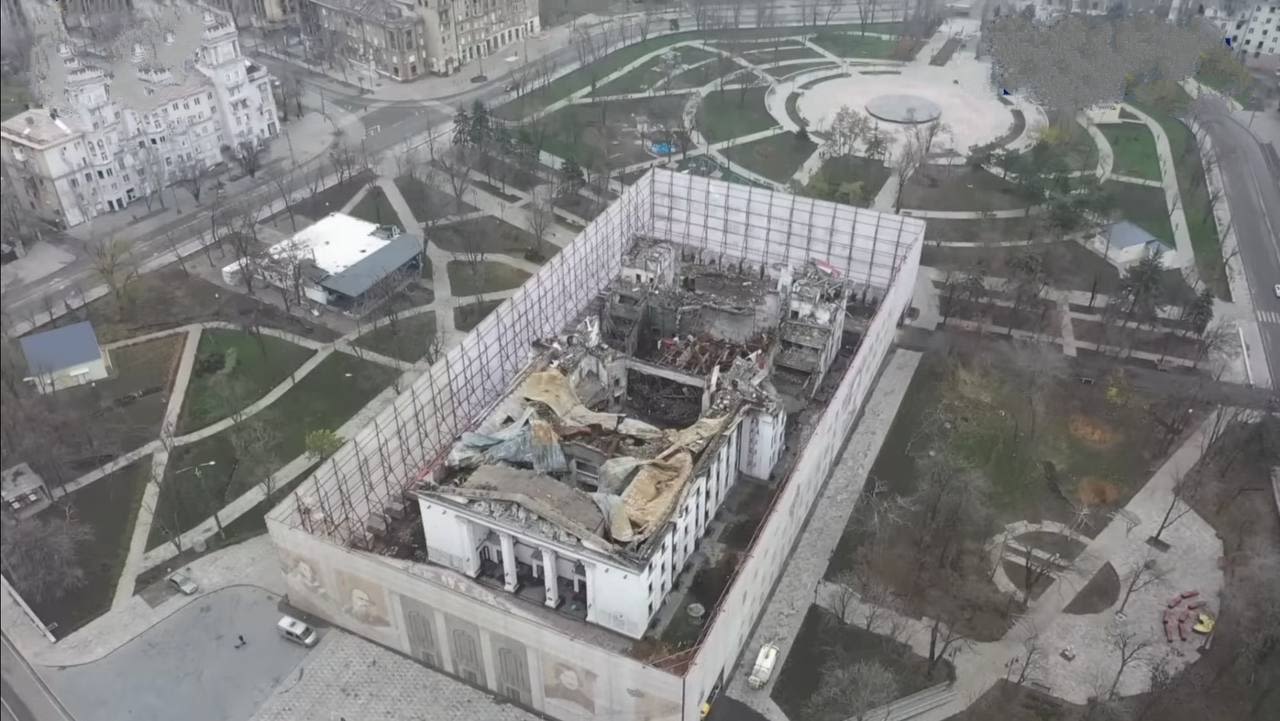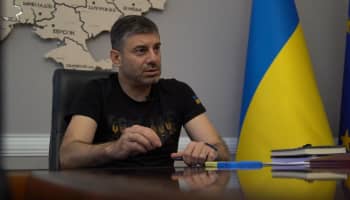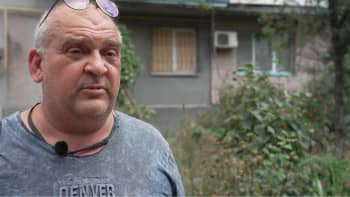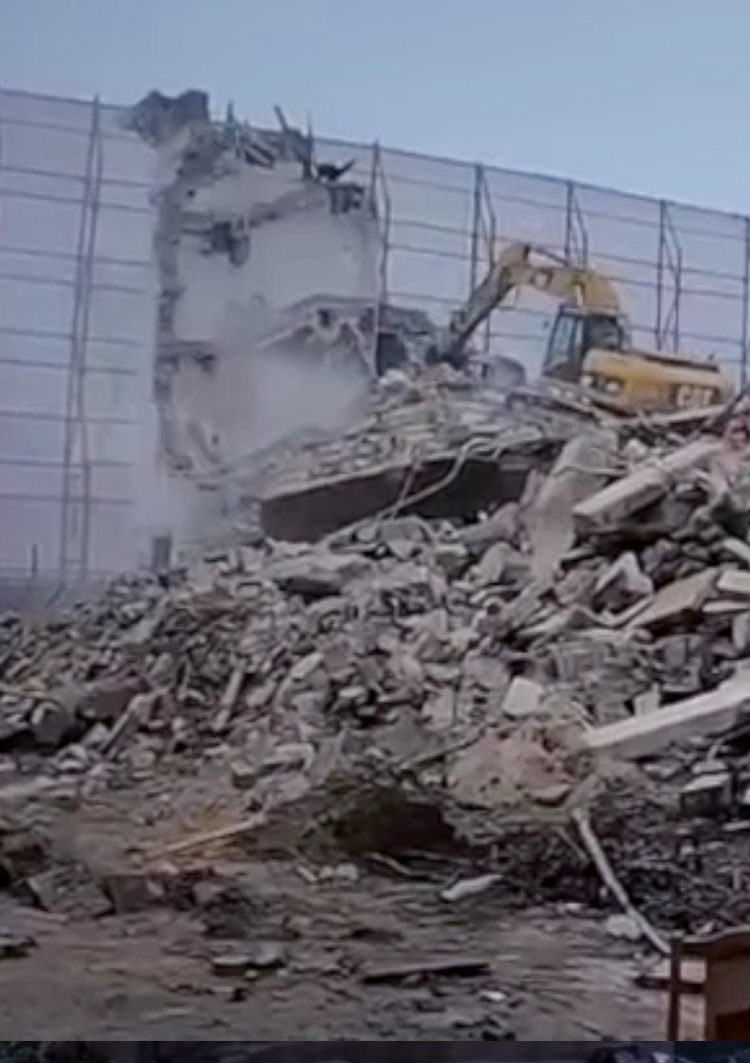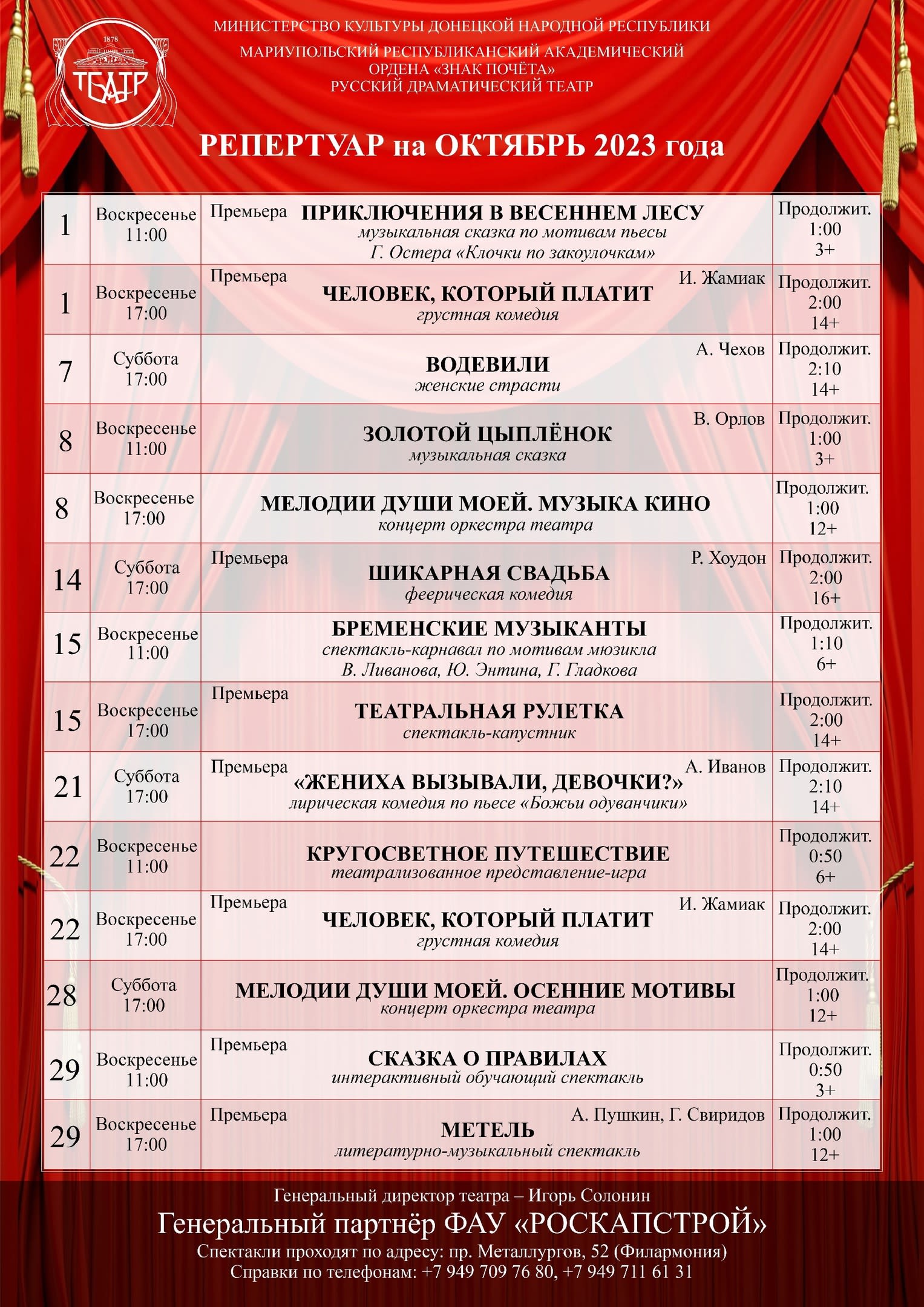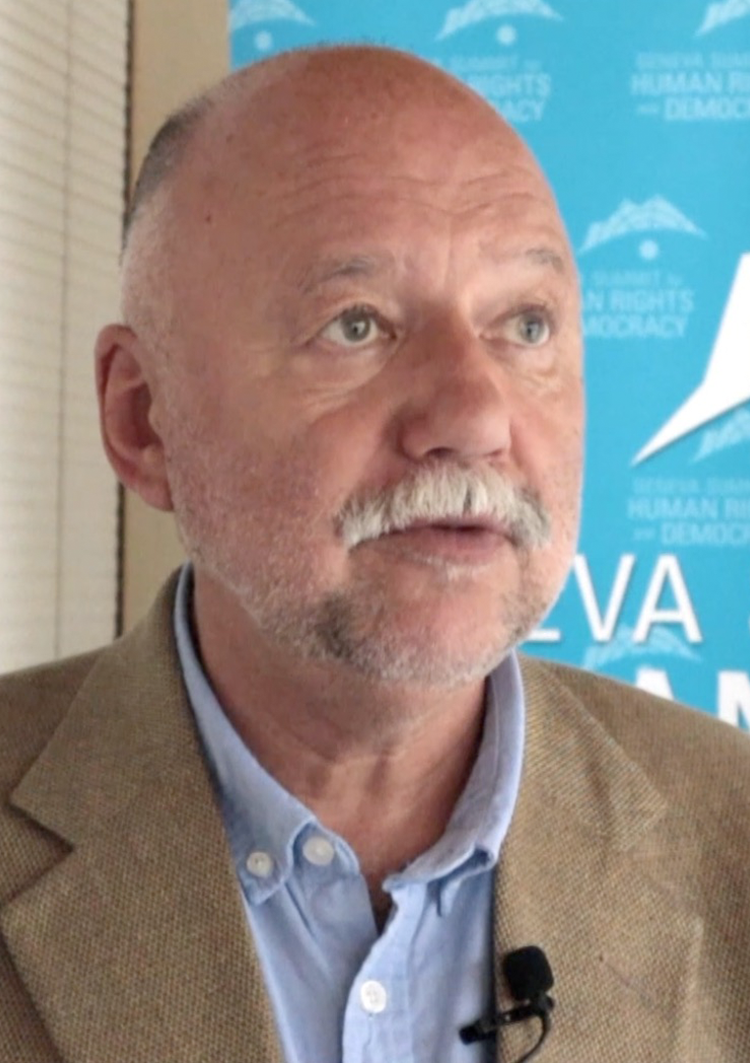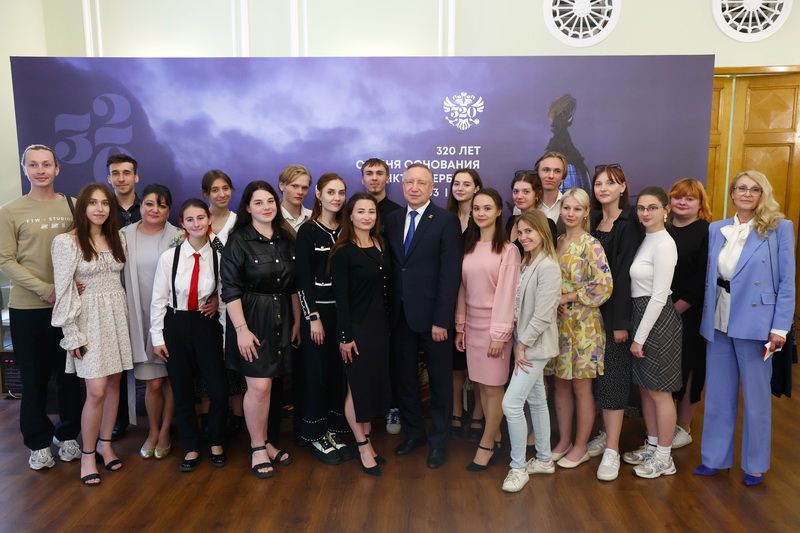Reimagining Mariupol
Reconstruction stamps Moscow’s world view
on Ukrainian city
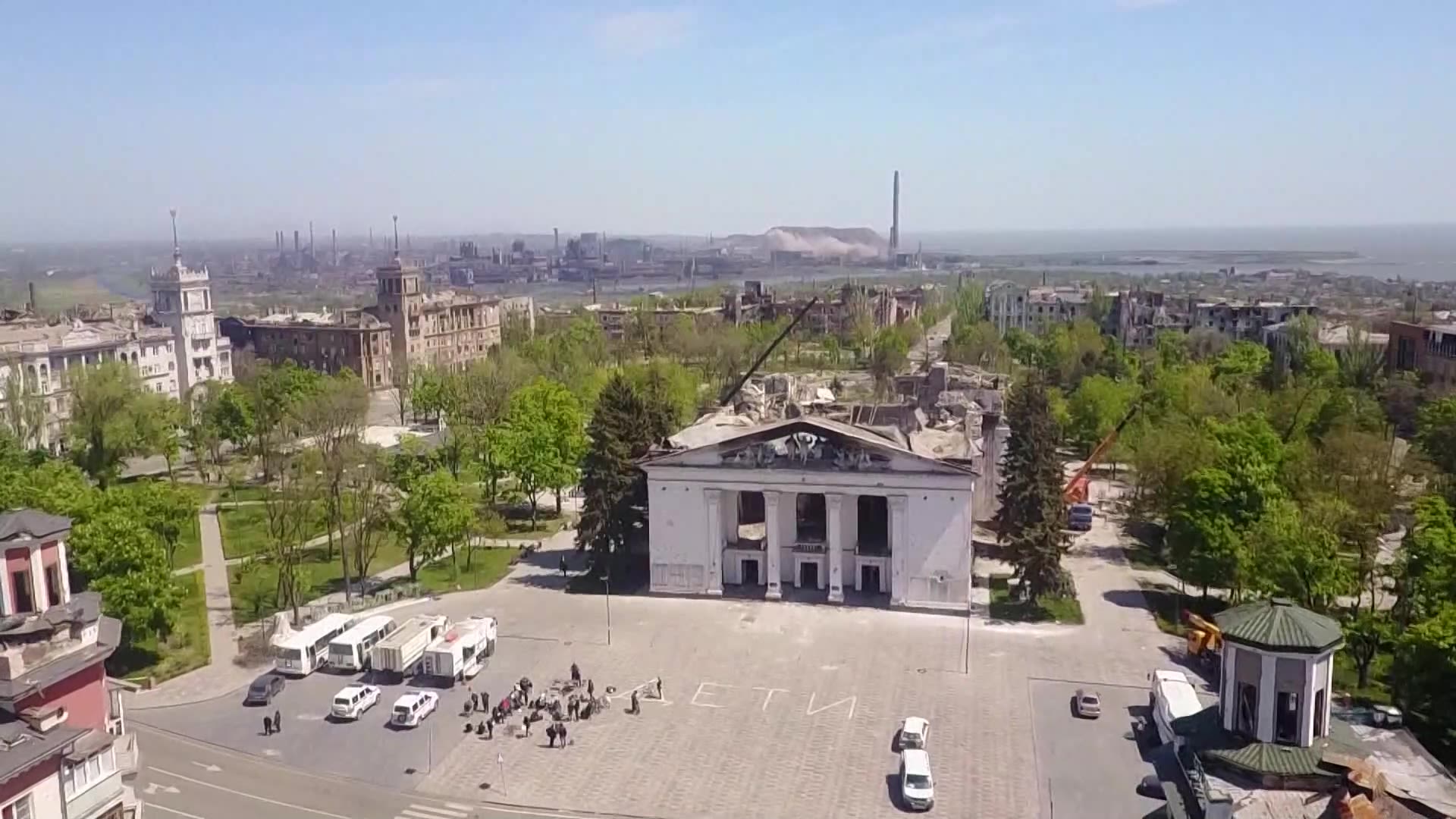
Arms held out in a dramatic gesture, Chinese soprano Wang Fang stood on a balcony overlooking the shattered interior of Mariupol’s theatre, singing a Russian patriotic World War II ballad. ‘Katyusha’ tells of a woman yearning for her sweetheart who is away at the front, and even with words translated into Mandarin Chinese, it’s a Soviet-era tune both Ukrainians and Russians would recognise, with very mixed emotions.
Soprano Wang Fang visited Mariupol as part of a Chinese delegation. Video courtesy of Denis Pushilin
Singer Wang Fang visited Mariupol as part of a Chinese delegation. Video courtesy of Denis Pushilin
In a video of her performance shared by the Moscow-backed leader of the occupied areas of Donetsk, Denis Pushilin, Fang is seen surrounded by debris and crumbling walls; a reminder of the Russian attack on Mariupol in 2022, which destroyed the city. The airstrike on the drama theatre - where residents were sheltering and which was marked with a sign reading 'Children' - killed hundreds of people, mostly civilians. The estimated number of victims ranges from 300 according to Ukrainian authorities but could be as high as 600, according to an investigation by Associated Press. It remains one of the deadliest attacks in Russia’s current war in Ukraine.
Aerial view of the Mariupol Drama Theatre, where hundreds of people died in 2022. Photo courtesy of Mariupol City Council
Aerial view of the Mariupol Drama Theatre, where hundreds of people died in 2022. Photo courtesy of Mariupol City Council
Fang’s appearance and the song she sang there sparked anger in Ukraine and international outrage for what was seen as a tone-deaf show of support for the Kremlin.
“It was a humiliation for those who died and for those who are still living and trying to survive, because she was singing on the bones of the dead people there,” said former Mariupol resident Victoria Lisogor. “In this way they are trying to destroy everything that is Ukrainian.”
Fang travelled to Mariupol with a delegation from China which maintains close ties with Moscow. In a gesture seen as a show of support for Moscow in times of war, she was the first international artist to perform there since Russia’s full-scale invasion of Ukraine started on February 24, 2022.
The video of Fang’s performance shows the theatre is in ruins, its plush, red theatre seats and chandeliers long gone, walls bare brick and without a roof, open to the sky. A yellowish light illuminates the scene, created by a huge construction sheet draped around the skeleton of the building.
Russia is renovating Mariupol fast, pouring money and workers into the city. The expense and effort devoted to rebuilding residential areas, cultural institutions and public memorials signals the Kremlin's intention to erase signs of the war and recreate a Russian city.
It's part of Moscow's Russification project, now taking place across the four newly-annexed regions: Donetsk, Luhansk, Zaporizhzhia and Kherson.
“It's a total system”, says Dmytro Lubinets, Ukrainian Parliament Commissioner for Human Rights. “Streets are renamed, cultural and architectural monuments are demolished. They destroy cultural signs like the embroidered shirts, for example. They tear off all symbols of statehood: our trident, flags, everything related to Ukraine, including the Ukrainian language. Textbooks are burned, the use of the Ukrainian language is prohibited.”
Mariupol in Donetsk region is the symbolic jewel in the crown because of its strategic importance as a port city on the Sea of Azov, just 40km from the Russian border.
Social media footage, statements and interviews show the process of replacing Ukrainian language and culture with Russian is underway across the city. In Mariupol schools the students are now learning lessons with Russian language textbooks shipped in by Moscow.
“Of course, we began to work according to Russian standards”, says Olga, a teacher interviewed in Mariupol under reporting restrictions established by Russian authorities. “We fully entered the legal field of Russia. Everything became completely different".
The reconstruction takes place in a city exhausted by war. “Everybody here will say the same thing. We cannot survive this once more,” Yuri Maler, an engineer in Mariupol said to a crew from Danish broadcaster TV2 this summer. “It does not matter whether you are with Ukraine or against them.” Others expressed their allegiance to the new rulers. “It is Russia’s soil. It has always been and will always be”, said Victor Pavlovitj, a pensioner, speaking in Ukrainian.
Away from politics, some simply welcomed the chance to move on and rebuild their lives. “People have become friendlier and happier. The situation has changed; we even had vacations with children at sea," Tatyana, a pensioner, said to an EBU crew during a reporting trip shot under reporting restrictions established by Russian authorities. “I’m waiting for peace to come, and not to see flying missiles anymore. So that children and old people, everyone smiles and lives with dignity, so that all the repairs are finished and the city is back in order".
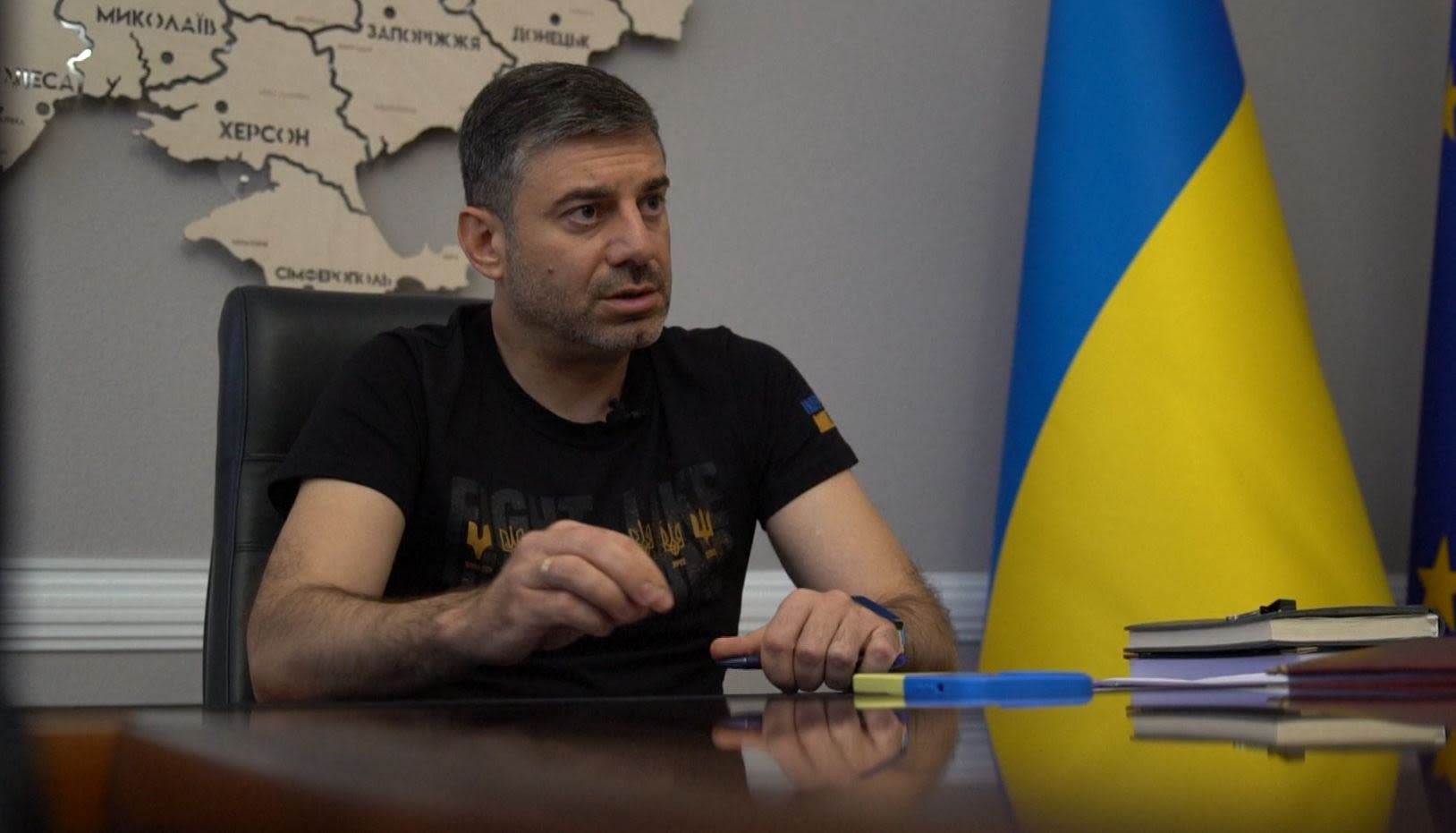
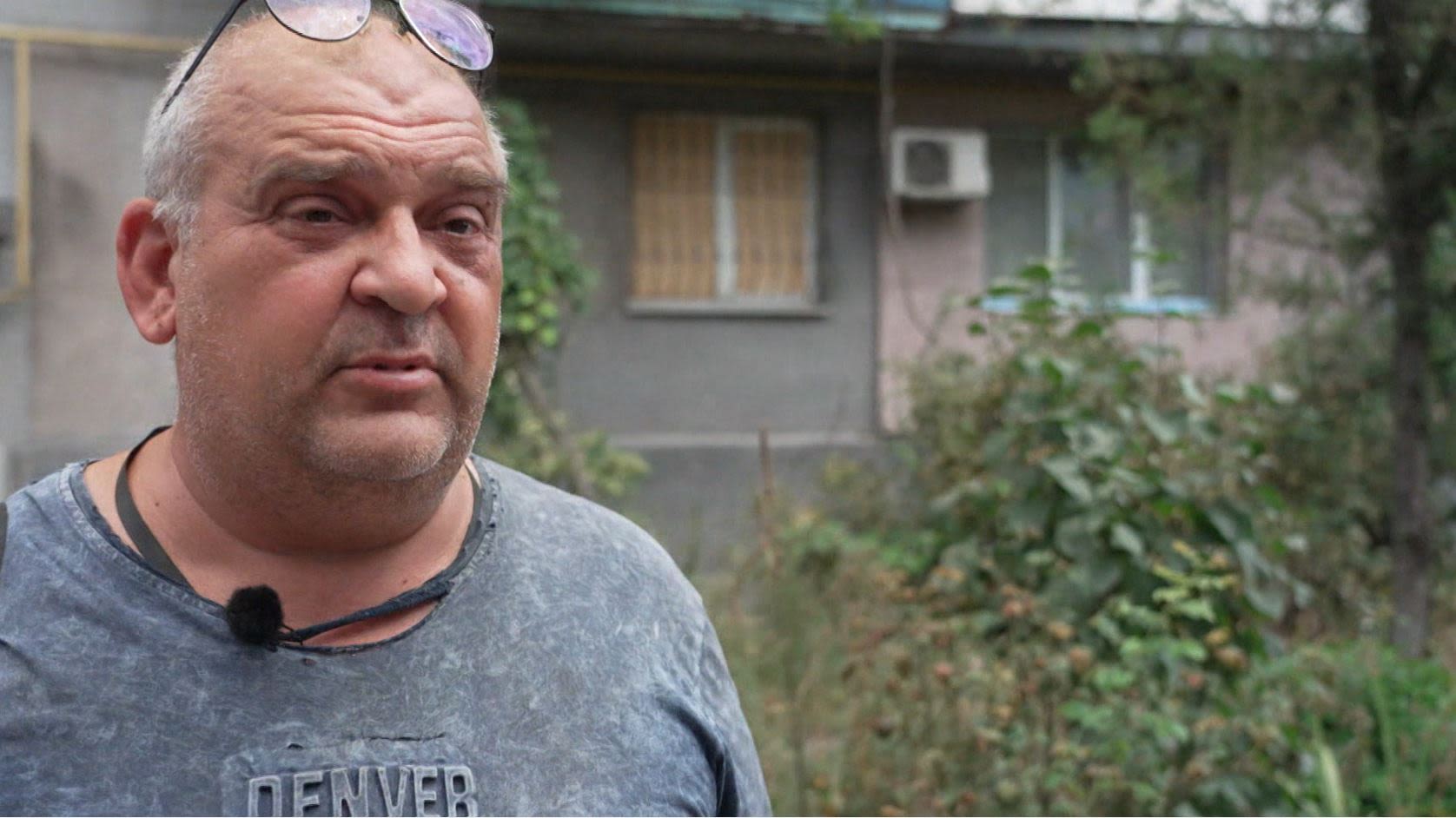
From ruin to emblem of rulers’ Russian culture
By December 2022 bulldozers were at work scooping out the remaining debris from inside the theatre, shown in a video posted to show the start of renovation. Mariupol's exiled Ukrainian mayoral aide Petro Andryushchenko described the process of reconstruction as Russia’s attempt to hide all evidence of the missile strike. “Now they plan to build on the bones of the people of Mariupol,” he wrote in a Telegram post.
As repairs proceed the theatre continues to operate, performing a Russian repertoire in Mariupol's Philharmonic Concert Hall, which was undamaged in the invasion and stands just streets away from the shell of the drama theatre. All the plays are now performed in Russian.
Language, according to Ukrainian author Andrey Kurkov, is a potent way to assimilate a population under occupation into the nation and culture of the occupying force. “If you force Ukrainians to speak Russian …they will slowly accept that Russian culture is their culture, not Ukrainian, that Russian history is their history, not Ukrainian history,” he said.
According to Kurkov, the author of 19 novels including his internationally-renowned dark satire Death and the Penguin, the 'Russification' of culture is an essential step in consolidating Putin's rule.
“(Ukrainian people’s) mentality is individualist, not collective. They never had a royal family, they are very freedom loving and for them freedom is the priority, not stability or money. For Russians, with a collective mentality, with the Tsar as the symbol of stability, freedom is not important,” said Kurkov.
Lyudmila Kolosovych, director of the Mariupol theatre up to the invasion in February, was in western Ukraine when she saw pictures of the missiles striking her own office at the theatre and was sure people she knew were sheltering in the building at the time. Kolosovych retells eyewitness accounts of a terrible stench from decomposing bodies under the rubble, enveloping the city centre. These were corpses the Russian authorities never removed, she says.
“They covered them with concrete,” said Kolosovych. “I believe that there can be no theatre in that place. How can you dance and sing on a grave?”
Approximately two-thirds of the 210 theatre staff remained in Mariupol, including the director, artistic director, designers and actors, says Kolosovych but she doesn’t know how many are working with the new administration.
Former mayoral aide Petro Andryushchenko said the occupiers are building "on the bones of the people of Mariupol.” Photo courtesy of Petro Andryushchenko
Former mayoral aide Petro Andryushchenko said the occupiers are building "on the bones of the people of Mariupol.” Photo courtesy of Petro Andryushchenko
The October 2023 programme of the Mariupol Drama Theater features Aleksandr Pushkin’s classic, The Blizzard, with music by Soviet composer Georgy Sviridov. Image courtesy of Mariupol Drama Theatre
The October 2023 programme of the Mariupol Drama Theater features Aleksandr Pushkin’s classic, The Blizzard, with music by Soviet composer Georgy Sviridov. Image courtesy of Mariupol Drama Theatre
Andrey Kurkov, award-winning Ukrainian novelist who writes in Russian says language is a potent way to assimilate population. Photo by EBU
Andrey Kurkov, award-winning Ukrainian novelist who writes in Russian says language is a potent way to assimilate population. Photo by EBU
Andrey Kurkov, award-winning Ukrainian novelist who writes in Russian says language is a potent way to culturally assimilate population.
Andrey Kurkov, award-winning Ukrainian novelist who writes in Russian says language is a potent way to culturally assimilate population.
Mariupol’s New Generation
Schooled in St Petersburg
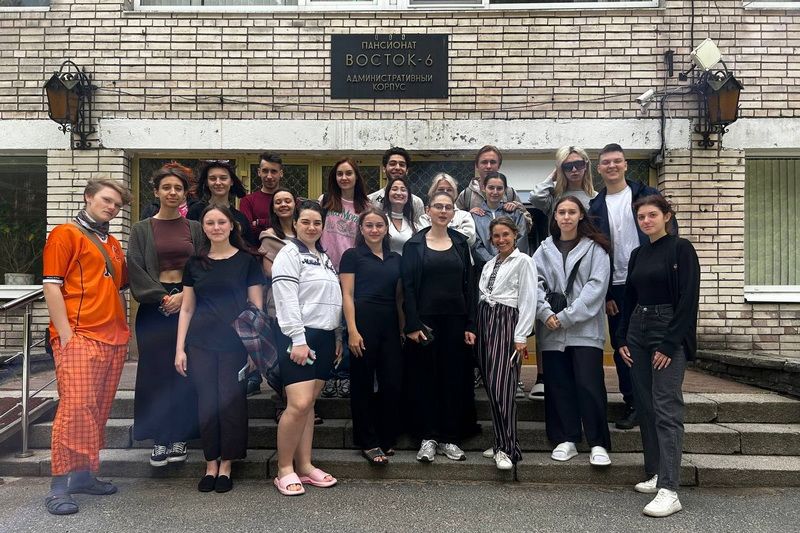
With eyes on the future, Russia is schooling a new generation of artists. In July 2023 the Russian State Institute of Performing Arts (RGISI) offered places for 16 drama students from occupied east Ukraine. Leaving behind the war zone in their hometown, these students will study to become actors and directors in RGISI's modernist building in central St Petersburg.
The students graduate after three to five years' study and are then obliged to return to the Mariupol theatre, explained RGISI’s Vitalii Nikolaevich in a call with Current Time.
In footage posted by the Russian Emergencies Ministry in July this year, 20 excited, smiling students set off in a pair of mini-buses to travel nearly 2,000 km by road to St Petersburg to audition for places at the Institute.
“Thank you Russia for this speedy, comfortable journey,” one student said upon boarding a bus to St Petersburg. Video courtesy of Ministry of Emergency Situations of Russia
“Thank you Russia for this speedy, comfortable journey,” one student said upon boarding a bus to St Petersburg. Video courtesy of Ministry of Emergency Situations of Russia
“Thank you Russia for this speedy, comfortable journey,” said one young woman. "And for the opportunity," added a fresh-faced young actor. St Petersburg mayor Alexander Beglov greeted the Mariupol students on their arrival.
The Mariupol students were given red-carpet treatment and covered by local media throughout their visit, the group posed on the steps of the institute for photos; some students are smiling broadly but others appear reserved, even apprehensive.
Applicants to RGISI's course for people from the occupied territories met mayor Alexander Beglov in St Petersburg. Photo courtesy of RGISI
Applicants to RGISI's course for people from the occupied territories met mayor Alexander Beglov in St Petersburg. Photo courtesy of RGISI
Showing off the sights of Mariupol
Russian President Vladimir Putin made a surprise trip to Mariupol in March 2023 and was filmed meeting local people in the brand new Nevsky district. As Putin chatted with residents, a woman's voice was reportedly heard off screen, appearing to shout "It's not true, it's all for show!" This awkward moment was edited out of state TV coverage of Putin's Mariupol visit, according to Russian independent news outlet Meduza; instead grateful residents were shown thanking the Russian president for everything he had done for them. The destroyed streets also remained concealed, although they still dominated much of Mariupol, where up to 95% of buildings were damaged by missiles according to Ukrainian president Zelenskyy.
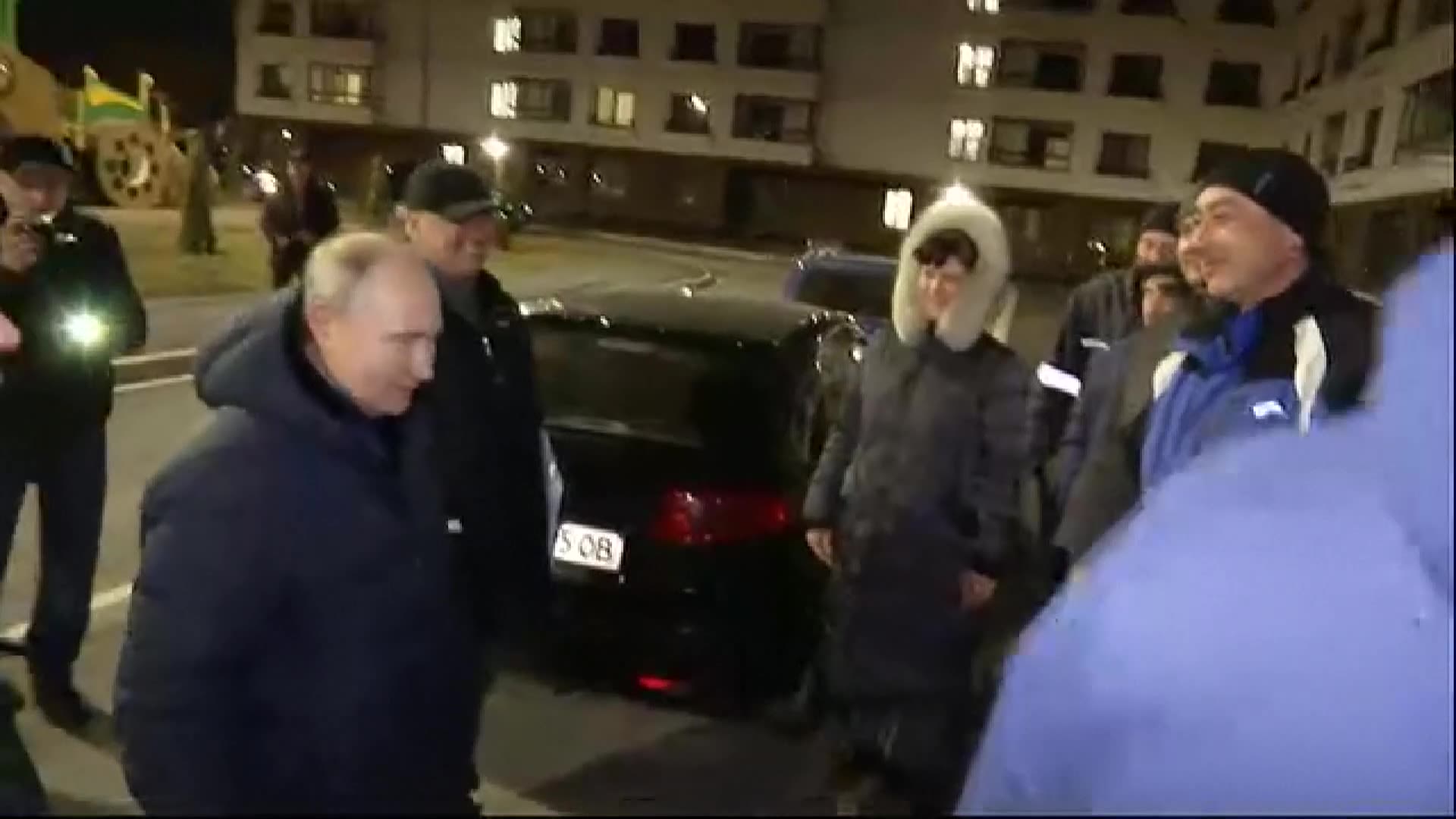
Even before Putin’s visit the new complex of white five-storey blocks was conceived as a symbol of Mariupol's regeneration built in the classic 'Russian Empire' style common in St Petersburg.
By September 2022 buildings had sprung up at breakneck pace. Denis Pushilin, the leader of the Donetsk People's Republic was handing out keys to the apartments as early as September 26 - only 90 days after the first foundations were laid.
To promote the 'benefits' of Russian rule, Russian authorities use local social media influencers to make Nevsky a trendy spot. Valeria, a teenager who records family life as @kapkaplerochka, tried out the playground erected between the buildings in August 2023.
Maria Danylivna Chushykina’s YouTube channel, ‘Masha from Mariupol’, has over 100 thousand subscribers who watched as she showed her friend Yulia from Kursk in Russia around the area in July 2023. Yulia was duly impressed: "It's better than home," she said, praising the playground and parking spaces.
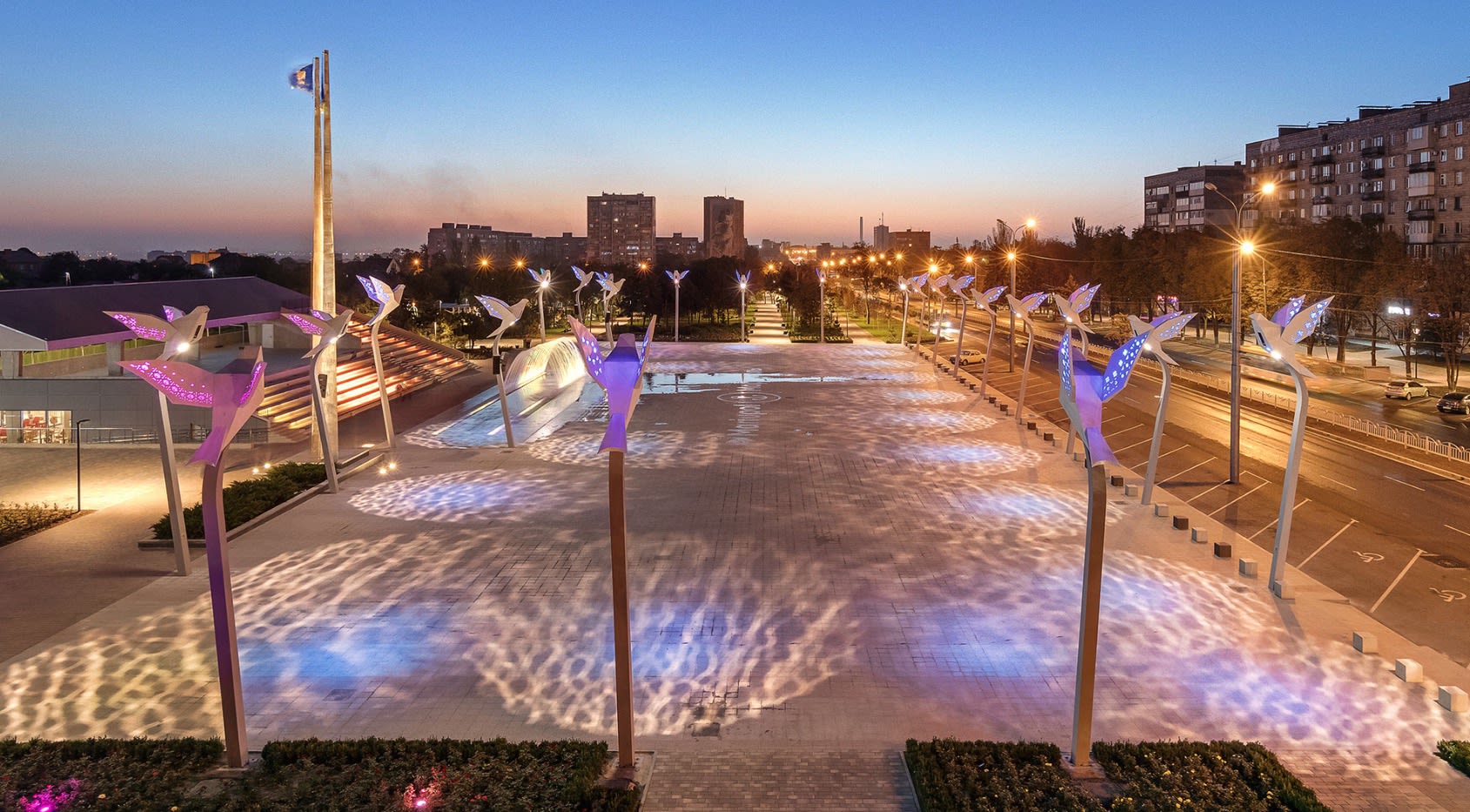

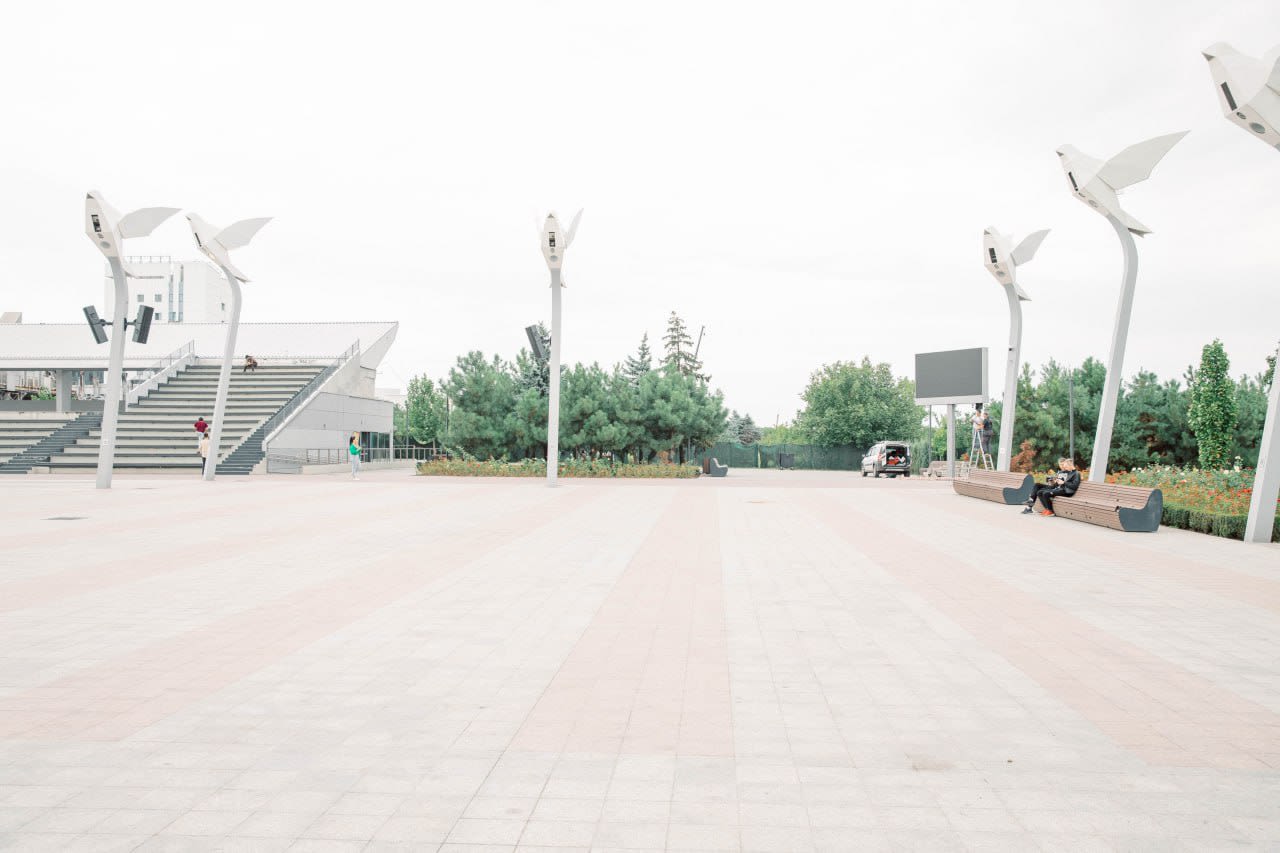
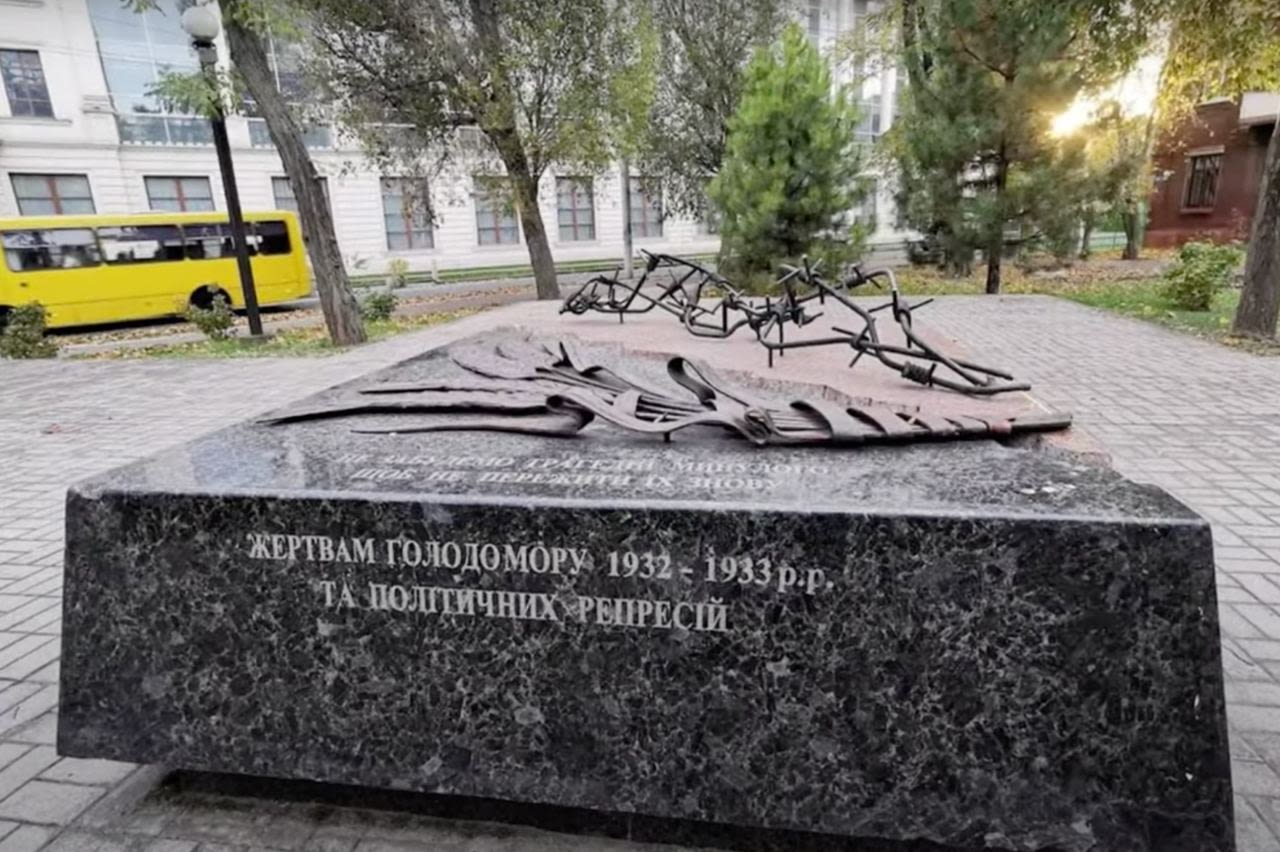
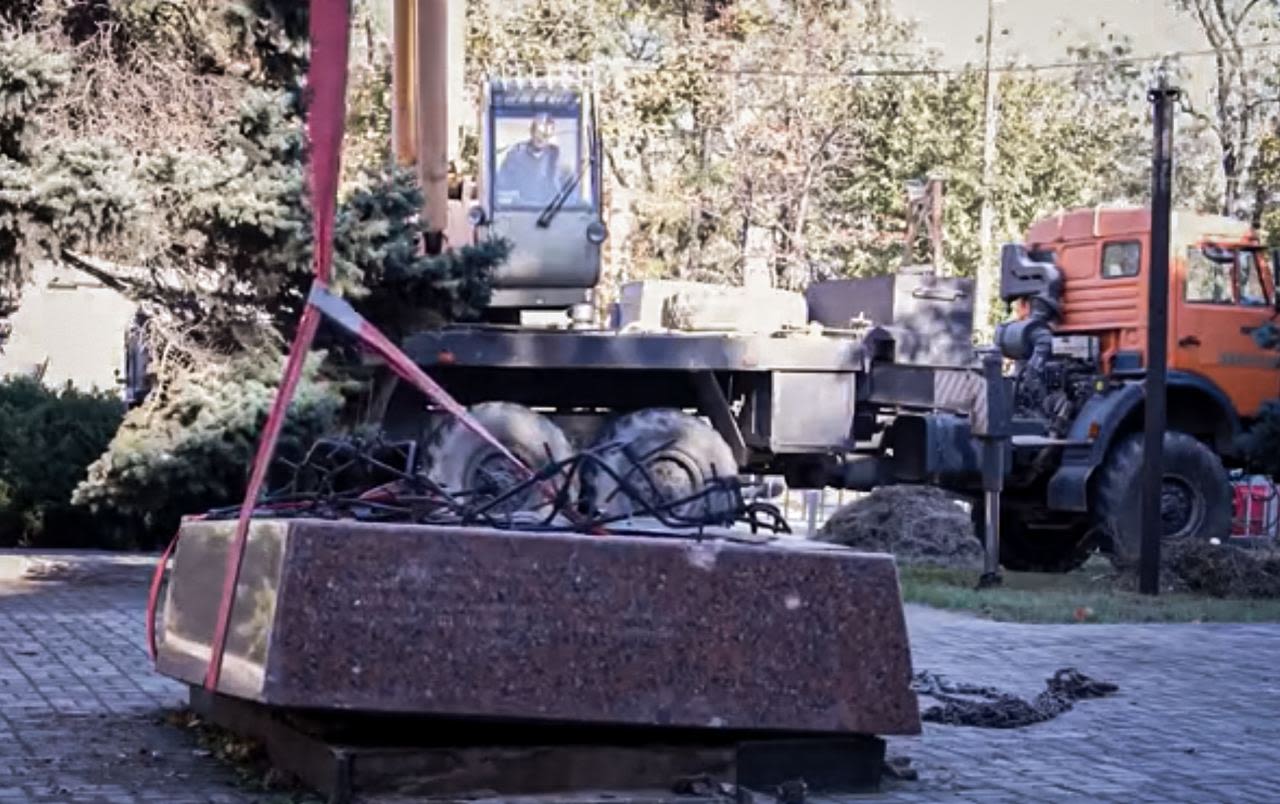
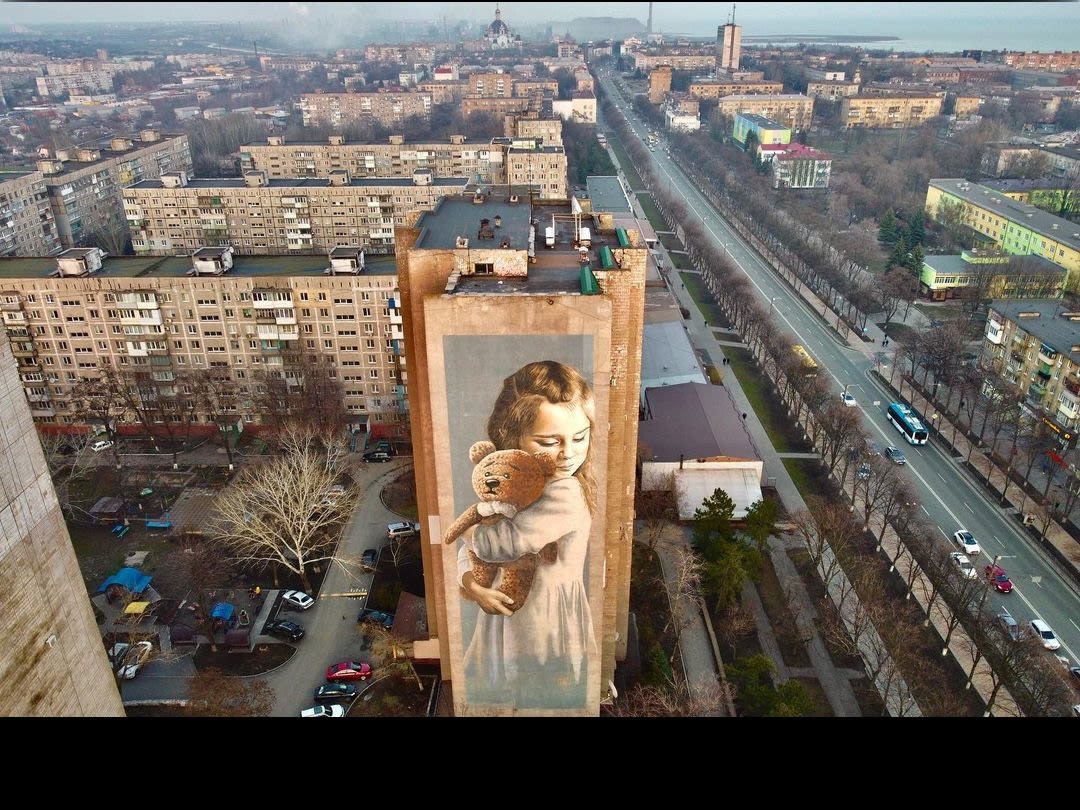
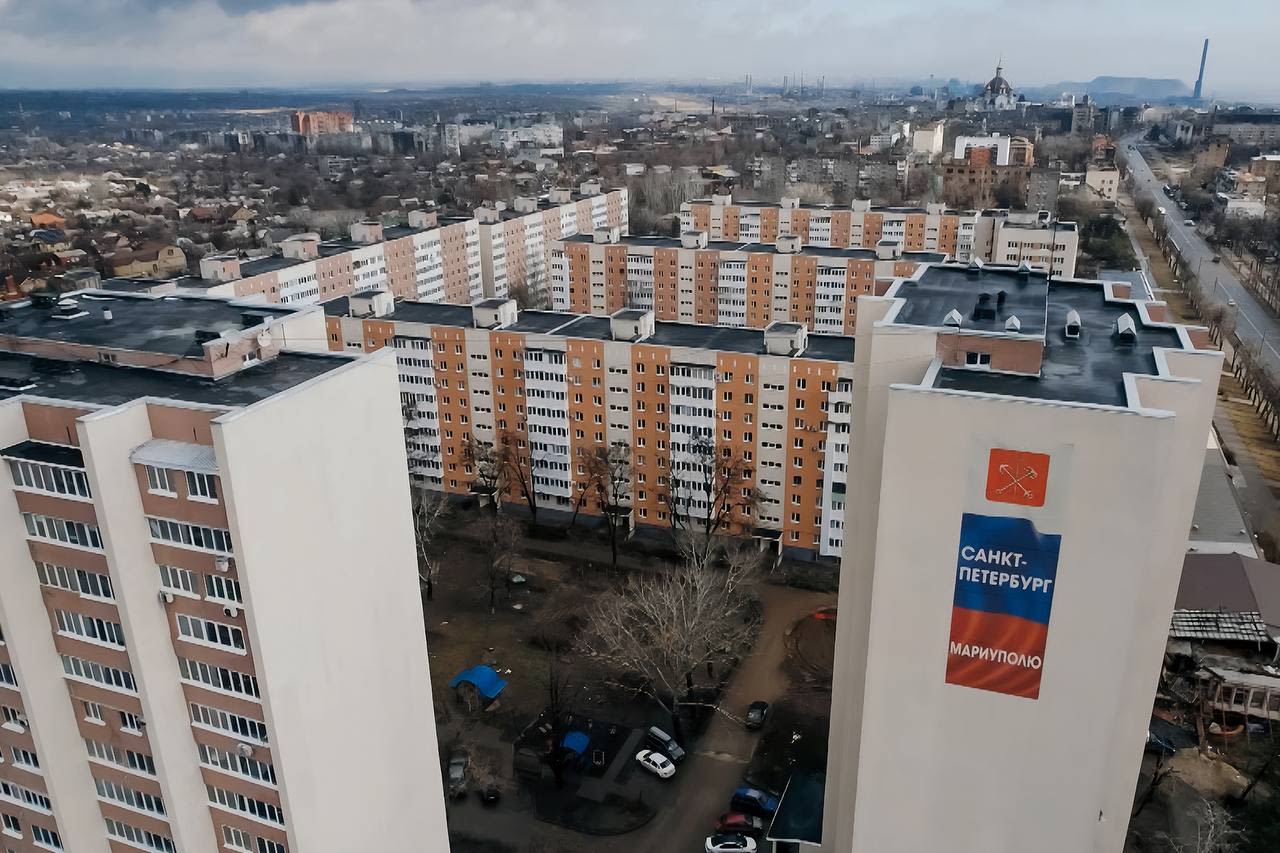
Mariupol’s search for symbols
Mariupol’s central Freedom Square (now renamed Lenin Square ) is surrounded by 25 statues of birds. The patterns on their wings once represented the 25 regions of Ukraine, bearing designs inspired by their local, traditional embroidery.
Other statues around the city that don’t match the Russian narrative have simply been eliminated. In October 2022, Ukrainian media reported the removal of the memorial to victims of the Holodomor, the 1932-33 famine killing five million people in the Soviet Union, up to four million of them Ukrainian.
According to a statement published by Russian state agency RIA, Mariupol's new administration, disputing the extent of the famine, dismantled the statue in a “fight against disinformation.”
On Mariupol’s Myra avenue, a giant mural of a young girl clutching her teddy bear was a reminder to residents of the 2015 shelling in outlying Mariupol neighbourhoods. Six-year-old Milana Abdurashitova survived because her mother shielded the child with her own body. Milana's mother and 28 others were killed in the attacks which a Bellingcat investigation concluded were carried out by pro-Russian separatists.
In 2023, city authorities had the Milana mural painted over and in its place, put up a Russian tricolour design. The slogan there reads “a gift from St. Petersburg to Mariupol,” referring to the huge funds being poured into renovating the city and reimagining its future as a symbol of Russian power.

